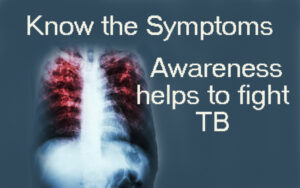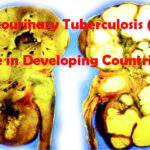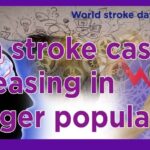Fight against Tuberculosis begins with awareness. In the olden day, TB was one of the leading causes of death. Lack of awareness, ignorance has made TB still prevalent in India.


India shares the burden of a quarter of global tuberculosis cases. Tuberculosis popularly addressed with the acronym TB is an infectious disease that usually affects the lungs. It can also affect other parts of the body like the spine or the brain. Lack of awareness, ignorance has made TB still prevalent in India. In one of the cases, Praveen had developed persistent cough and it continued for 1 month. Initially he thought it is due to the dust allergy and started taking over the counter medicines from the pharmacy.
The cough stopped initially and after some days Praveen again started to experience chronic cough. This time the cough was accompanied with fever and chills along with loss of appetite. Worried about her husband’s condition, his wife took him to the doctor and he was diagnosed with TB. As Praveen also had the habit of smoking, it had aggravated his condition. Also, the initial ignorance on his part had further worsened his condition.
In the olden day, TB was one of the leading causes of death. Thanks to the development of antibiotics and improved living conditions, the prevalence of the deadly disease was controlled. But even today, TB is a major health problem in India with 24 lakh cases and 79,000 deaths in 2019 according to the India TB report 2020. Adding to the existing woes is antibiotic-resistant TB which has renewed the concern among healthcare professionals.
What is Tuberculosis and how does it spread?
Tuberculosis is caused by a bacteria called Mycobacterium tuberculosis. There is a lot of misconception about the way this disease spreads. The bacteria doesn’t spread when shake hands, share food or touch toilet seats. When a TB infected person, coughs, sneezes or speaks, the bacteria are exposed to air. When the people nearby breathe in the bacteria they become infected.
What are the symptoms?
Not all people who are infected with TB bacteria start to show up symptoms. This condition is called latent TB. Also, tuberculosis can stay dormant for years together before it turns active. There is also no risk of infection transmission in latent TB. When the body is unable to contain TB bacteria due to weakened immunity or even by the use of certain medications, the TB bacteria can replicate and result in active TB. Active TB leads to many symptoms and the majority of them are related to the respiratory system.
1. A person with latent TB will show no symptoms and no damage even in a chest X-ray. But a skin prick or blood test will indicate they have a TB infection.
2. Individuals with active TB may experience a persistent cough that lasts for at least 3 weeks.
3. They will also produce phlegm (which may have blood) when they cough.
4. Chills, fever, loss of appetite and loss of weight are other common symptoms.
5. Night sweats and chest pain is also attributed to active TB symptoms.
6. While on one hand, the symptoms worsen over time, on the other hand, they suddenly disappear and then return.
7. TB can also cause abdominal pain, joint pain, seizures, persistent headache and lead to swollen glands.
Treatment:
Tuberculosis is treatable when it is detected early. Treatment depends on the person’s age, location of the infection and whether the TB is latent or active. Another factor that decides the treatment is the strain of TB whether it is drug-resistant.
Treatment for latent TB involves taking antibiotics and for active TB the affected ones might be recommended to take several drugs for a duration of nine months. The treatment will be complex for drug-resistant TB.
Complete full treatment:
One essential factor in the treatment of TB is to complete the full course of treatment. When a person stops taking medications before the full course is complete, it can allow the TB bacteria that are still alive and can turn into drug-resistant TB.


Dr.Hirenappa Udnur
Pulmonologist
Columbia Asia Hospital , Hebbal
Bengaluru











